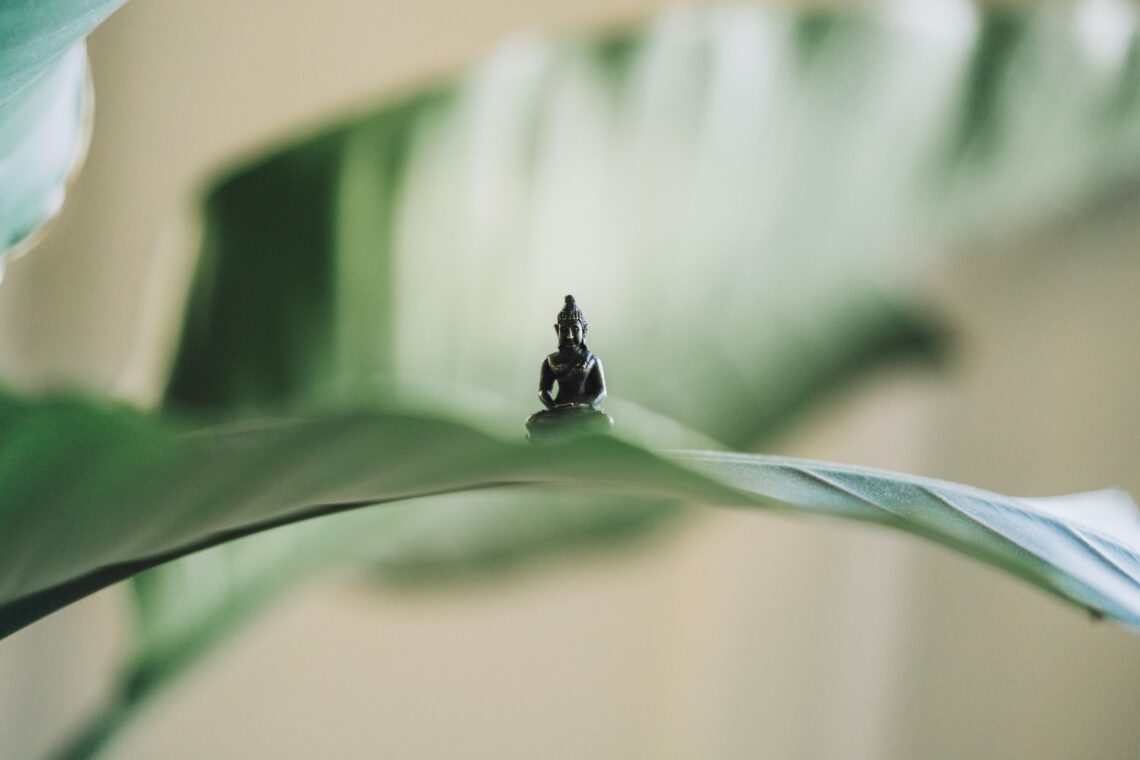
What Living in the Now Means
There are a lot of misconceptions about what “Being or Living in the Now” means.
For one thing, a lot of people think Being in the Now means just acting on any whim or impulse that might come up. I’m not saying that never happens, but if one did that on a regular basis, the underlying “now” feeling would be one of stress, frenzy and feeling out of control.
Living in the Now is an Evolutionary Process
Being in the “now” is an evolutionary process of peeling away the layers of our ego to get in touch with our real self or the ground of being. The early stages of this layer peeling might indeed begin with following impulses, but if we are mindful, we would quickly evolve out of that for the reasons given above.
When great spiritual teachers or philosophers speak of being in the now, they are referring to whatever is present for us in that moment. If we are angry, sad, or happy, that is who we are at that moment. Accept that and don’t run from it.
What is Living in the Now?
Another misconception about being in the now is that it means we have attained a blissful state of oneness with God, Reality, the Tao, Brahman, Spirit, or whatever we want to call the Absolute.
I recently got into an argument with my wife. She told me to be in the now and chill out. I told her I was in the now, and my “now” was anger and frustration. Was I justified feeling like this? That question is irrelevant. Being in the now means honoring and accepting our mental and emotional state at that moment.
Why We’re Afraid of Our “Now” Moments
A lot of us don’t accept all of our “now” moments, especially the negative ones. We suppress rather than face them. Maybe a negative emotion like anger violates our view of ourselves as always being calm, cool, and collected no matter what the situation. We just can’t accept that we lost control of ourselves and got angry, so we deny it.
Or, maybe something makes us angry and we get angry at ourselves for getting angry over something we didn’t think was worthy of that anger.
Perhaps someone we don’t respect made a derogatory comment about us, making us angry. We then become furious at ourselves for letting their comment get to us. We try to explain our anger away with excuses, rather than just accepting that we are pissed off.
Being in the “now” means accepting that anger because at that moment, it is our reality. To deny it is to run away from ourselves. It means we are not peeling away the layers of our ego on the road to self-understanding.
Planning for the Future In the Now
Another misunderstanding people have about living in the moment is that it means we can’t plan for the future, like retirement. People reason that if we are always living in the now, we never have time to think about the future.
But that’s not true. In one of our “now” moments we might feel anxiety about our future, worrying about how we will support ourselves when we retire.
Not living in the moment would mean suppressing that anxiety and not facing it.
Or suppose we are working at a job and for a boss we detest. Every day, we get up, go to work and hate it. To continue in this way is to deny our negative emotions about our situation. That moment is trying to tell us something. Living in the moment means paying attention to those overwhelming and consistent negative emotions, and doing something about them.
It may not mean quitting our job immediately, especially if we have no other means of support, but it does mean that we should begin the process of looking more deeply into ourselves to see what it is that we want to do, and developing an action plan.
Just taking action, making a plan, can help relieve those negative feelings because at least now, we are finally seeking a way out of our situation. We are able to do that because we are living a mindful life in the now, which offers us insights into our own situation.
Being In the Now Means Accepting All our Now Moments
The real problem with being in the now is we often have to accept aspects of ourselves we don’t want to accept.
When we can face that reality, then our growth begins. We embrace those negative emotions or mental states by feeling our way into them, and seeing where they take us and what they have to teach us.
Journaling Can Help Overcome Fear of the “Now”
Writing out our negative emotions, like anger, in a journal can be helpful as long as we don’t censor ourselves. Just let it flow and see where it takes us. If when we finish we don’t like what we have written, we can always throw it away. Nobody has to see it, but doing this can relieve pressure and give us a new perspective.
Should We Label Our Emotions?
I have debates with people about how to deal with negative emotions. Some people think it is very important to label whatever emotion we are dealing with, like anger. They believe by defining it, it helps us to deal more effectively with it.
I’m not denying that approach doesn’t have some validity, and can be beneficial. But, sometimes it’s good not to label the feeling, and just experience it. The problem with labeling is it brings thought into the picture which can limit our experience of the emotion.
It’s also helpful to divorce the emotion from the person and/or the situation that caused it. In other words, just delve into the feeling directly without trying to explain or justify it.
Why do that? Because in the end, these feelings tell us more about ourselves than they do about other people.
Why Are We So Easily Triggered?
We have to wonder, why did that derogatory comment from someone I think lowly of have such an impact on me? Why did it trigger my anger? What buttons did it push and why is that such a vulnerable area in me? What does it say about me that they made me feel like this?
We can ask ourselves, “Am I just a stimulus/response machine where someone can push a button and get a programmed response? Don’t I have more control over myself than that?” In short, nobody can make me feel anything. I am responsible for my own feelings.
If we continue to work on this, we will get some deep insights into ourselves. We might even want to thank the person who “insulted” us for giving us this learning experience.
Being in the now means experiencing the state we are in directly with no thoughts intervening. Each time we work through an emotion we peel away another layer of our ego. If we continue to do this, we will loosen the grip of our ego that keeps us imprisoned. The deeper we take this, the more we liberate ourselves, from ourselves.
To learn more about the magic of the universe: Click this link: The Magical Universe.
Photo by Samuel Austin on Unsplash




